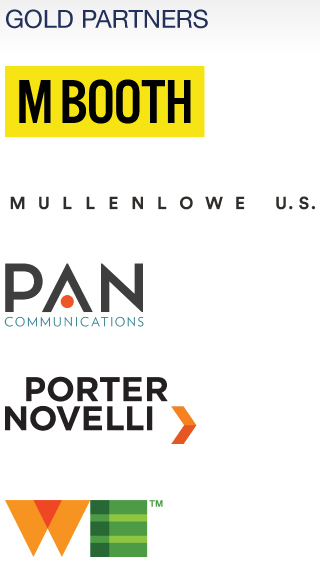Paul Holmes 13 Feb 2018 // 5:13PM GMT

NEW YORK—In a rapidly changing communications environment, communicators need to refocus on their core responsibility, building trust for their clients and their causes, Frank Shaw, corporate vice president, communications, at Microsoft told the audience at the North American In2 Summit, taking place in New York this morning.
Shaw was kicking off a discussion on The Speed of Change — CCOs On Tomorrow's Challenges, sponsored by WE Communications by discussing the changes impacting communicators and the media upon which they depend.
“Our industry has been changed, and not necessarily in a good way,” Shaw told the audience. “Early in my career, if you got a story in the New York Times, The Wall Street Journal, you could tick the box and say mission accomplished. You had an factual story in a publication that was trusted, that people agreed was accurate. Today, our ability to tell stories that way has been unbelievably challenged.
On the other hand, he said, “There’s more great journalism happening today than at any times. New media business models are springing up. News organizations are enjoying success with their online publications. The media have the power to drive social change. The #metoo movement was driven based on news reporting. There are more ways to tell our stories than ever before. There are more ways of reaching our audience than we could ever imagine. We are in a golden age of journalism.”
In such a fast-changing environment, with potential benefits and heightened risks, Shaw said, “Our job is clear: we build and maintain trust in the clients and causes we work for. In a world where trust is hard to build and easy to lose, that’s our job.”
He suggested a number of rules for building trust in this environment: “Stand up for what you stand for,” he said. “Communicating about purpose and values and belief is fundamental. It’s not enough to tell people what you’re doing; you have to talk about why.” He cited Microsoft’s position on the immigration ban that was launched shortly after the new administration took office. “We knew it was important to our people, but we also knew it was core to our mission of empowering people. We talked about what we stood for, this concept of enlightened immigration.”
Secondly, he said, while “content may be king, context is queen. We have to open up about the journey we have been on. We have to bring our customers on the journey we have been on.”
And finally, he urged: “Trust doesn’t have to be boring. We can be bold in terms of the stories we tell and the news outlets we work with to tell them.”
In the panel discussion—led by WE Communications chief client officer Dawn Beauparlant—that followed Shaw’s introduction, GE chief communications officer Deirdre Latour focused on the issue of context.
“In our role we deal with such a broad coalition of people, the CEO and the CFO and the COO, all of whom have a point of view of what we should say and shouldn’t say. But at GE we have always come back to our people and their values and what they expect of us. We have always been ahead of other industrials on sustainability and environmental issues, for example, and so we were able to take a position that we did not think withdrawing from the Paris climate agreement was the right way forward.
“At the same time, that point about context is important. We at GE are going through a difficult cycle right now, and so Wall Street in particular isn’t very interested in anything that is not going to have a positive impact on quarterly earnings.”
Torod Neptune, worldwide vice president and chief communications officer at Lenovo, said that when it comes to major issues, “We are asked to comment on or weigh in an almost infinite number of issues. We have to ask ourselves where we have been given permission to have a point of view, where it can be authentic to who we are. We also need to focus on those issues where we can have an impact. It’s not about engaging for engagement sake. We have to select those issues where we can make a difference.”
Discussing the impact that technology has had on the communications profession, Beauparlant asked how CCOs were using data to work more effectively.
“We are probably at step two of a 10-step process when it comes to data,” Latour said. “We have a very data-driven grassroots program, building a database of thought leaders who understand our business and support us on issues. We are also working to get meaningful insight from our employees that we can deliver to the CEO, so we can see early warning signs of potential problems.”
Shaw, meanwhile, said improved access to data had changed how his team approached measurement. “We are trying to move from a communications scorecard to understanding what insights we have derived from our output,” he said. “So we found, for example, that we were not getting strong results outside the US from US-based news events compared to our peers. One reason was that we were finishing our presentation the night before, which meant there was no time for translation or training people in the rest of the world so they could provide context.”
Neptune, meanwhile, said that data has led to an insight that Lenovo was not getting credit for the innovation that went into new products. “We found relatively little appreciation among consumers about innovation. We started to spend a lot more time engaging product design people in the process, helping us understand the innovation that went into these new products. It helped us drive more focus on innovation.”
Finally, responding to a question from the audience, Latour said there was not a major a decision at GE taken without input from the communications function. “I think there’s a realization that reputation is vital to the company’s ability to operate and that reputation can be damaged very easily. I would say that if you work for an organization that doesn’t understand the value of reputation, go to work somewhere else.”


































.jpg)



















